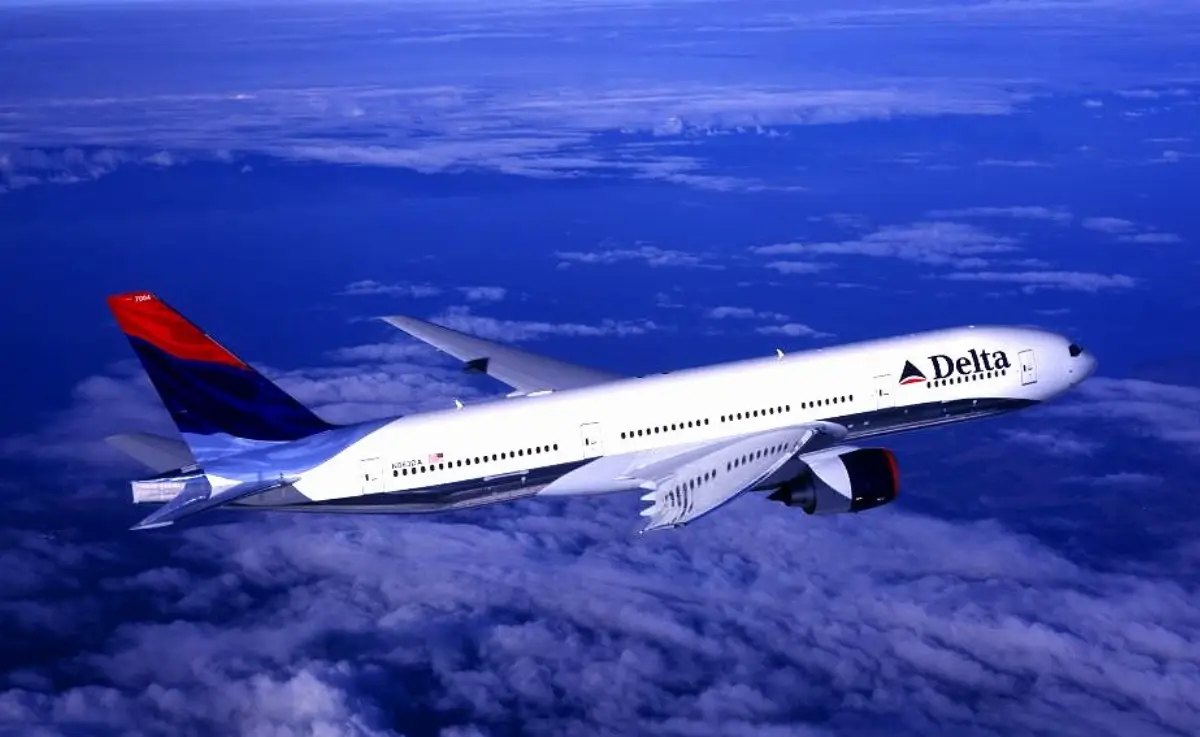
Class action. Delta capitulates: $ 79 mln for the aircraft fuel spill of 2020
Flight 89 had dumped tonnes of kerosene over Los Angeles following an onboard emergency

The air company, while denying any liability, accepts the compensation to close the class action and avoid lengthy litigation
Almost five years after an incident that sparked a wave of controversy and health concerns, Delta Air Lines has reached an out-of-court settlement of nearly $79 million. The sum, which constitutes one of the largest payouts in civil aviation history for a case of this kind, is intended to compensate Los Angeles residents and property owners affected by a massive fuel spill that occurred in 2020. The agreement, which now awaits approval by a federal judge, brings to an end a long and complex class action filed by citizens.
The episode originated on January 14, 2020, when Delta Flight 89, operated by a Boeing 777-200 and bound for Shanghai-Pudong Airport, experienced an engine malfunction shortly after takeoff from Los Angeles International Airport. The pilots, to reduce the aircraft’s weight ahead of an emergency landing, decided—as often happens—to dump approximately 7,000 kg of fuel. However, the operation, carried out at low altitude, caused a veritable rain of jet fuel over tens of thousands of homes, businesses, and notably several school campuses, causing illness and irritation among dozens of people, many of whom ended up in hospital.
From the outset of the litigation the plaintiffs’ position was clear: the fuel dump was not only unnecessary, since the B-777 could have landed safely with the fuel load aboard, but was also carried out recklessly and contrary to protocols. The pilots, they argued, should have dumped the fuel over the Pacific Ocean and at a safe altitude above 5,000 feet to allow it to fully evaporate. The decision to operate below 3,000 feet over densely populated areas, including schools, formed the basis of the legal case.
Delta, for its part, has consistently rejected any accusations of negligence. In an official statement it reiterated that the pilots acted in accordance with federal regulations and their training, prioritizing the safety of passengers, crew and people on the ground. The airline also noted that a subsequent investigation by the Federal Aviation Administration (FAA) had cleared the flight crew of any responsibility. Nevertheless, Delta said it wanted to close the matter to avoid the uncertainty, distractions and high costs of a further prolonged legal battle. As proof of its good faith, the company committed, as part of the settlement, to provide certificates of non-contamination to the owners of the roughly 38,000 properties involved, to "restore the value of their greatest asset".
The agreement provides for compensation of about $50 million, net of legal fees, which will be distributed among the affected families. The sum will translate into compensation of about $1,300 for each individual property. The incident reignited debate over emergency protocols and highlighted a discrepancy between the pilots’ communications and the subsequent action taken: audio recordings with air traffic control (ATC) reportedly revealed that, in response to a specific ATC inquiry about the need to dump fuel, the crew initially answered no, and then proceeded with the operation in an area and at an altitude that were not authorized.
AVIONEWS - World Aeronautical Press Agency